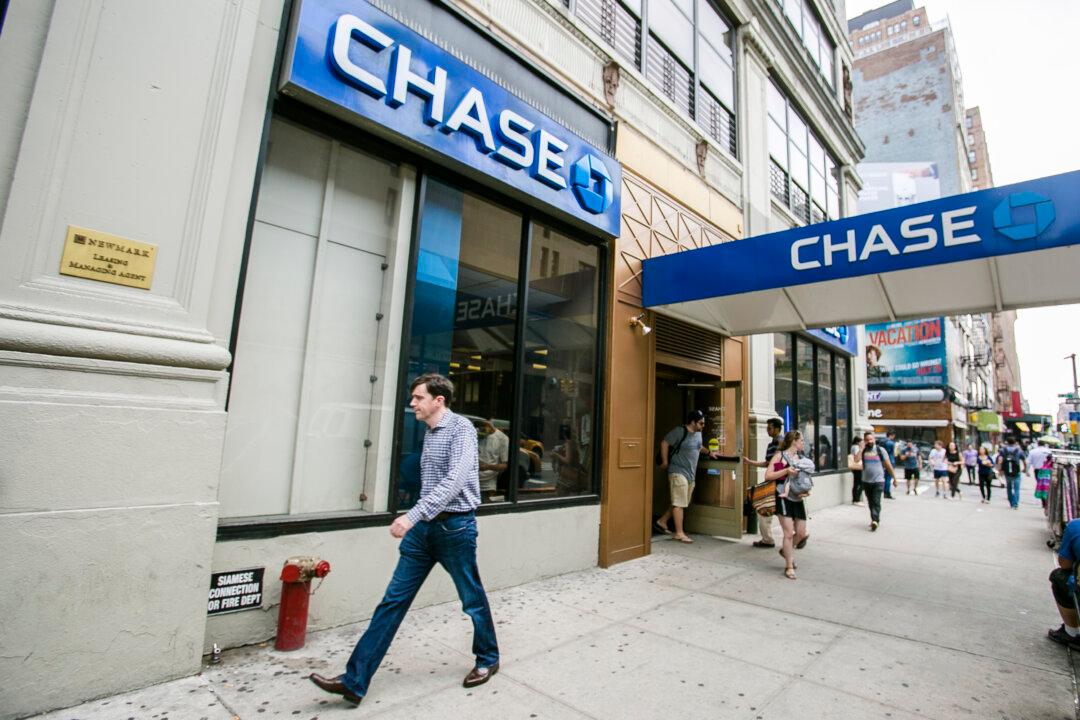Chase Bank denied services to the business of a conservative man one day after a journalist with the left-leaning online magazine Slate inquired about the business and linked it to “a hate group,” a leaked email shows.
On Jan. 31, Slate reporter April Glaser sent an email to several Chase representatives asking whether Chase was aware that an online store—1776.shop—linked to the right-wing group Proud Boys was using Chase as a payment processor, according to an email obtained by independent journalist and commentator Tim Pool.





